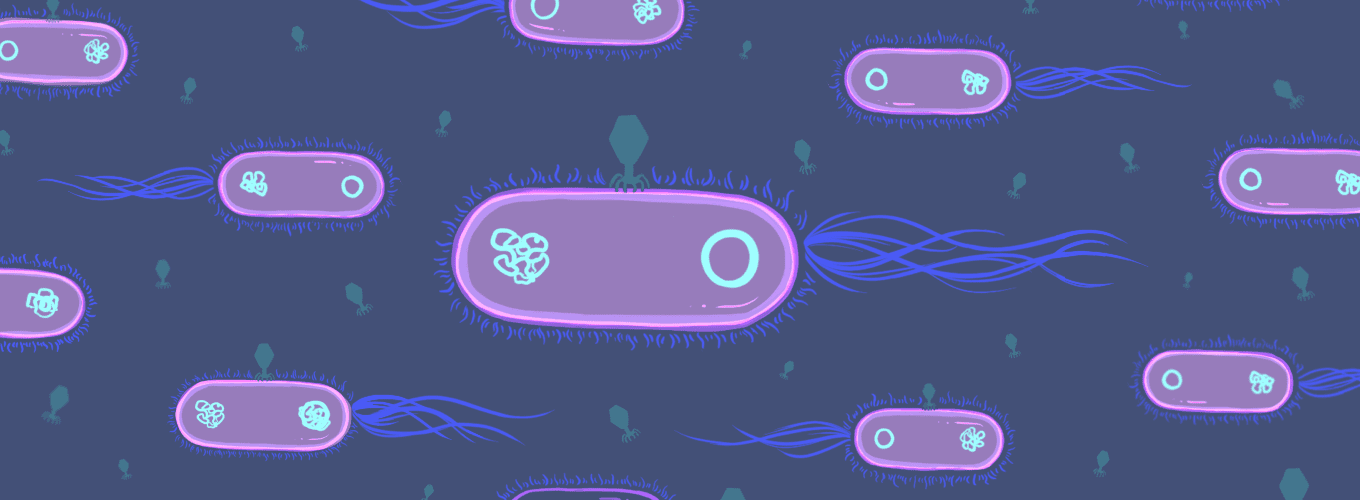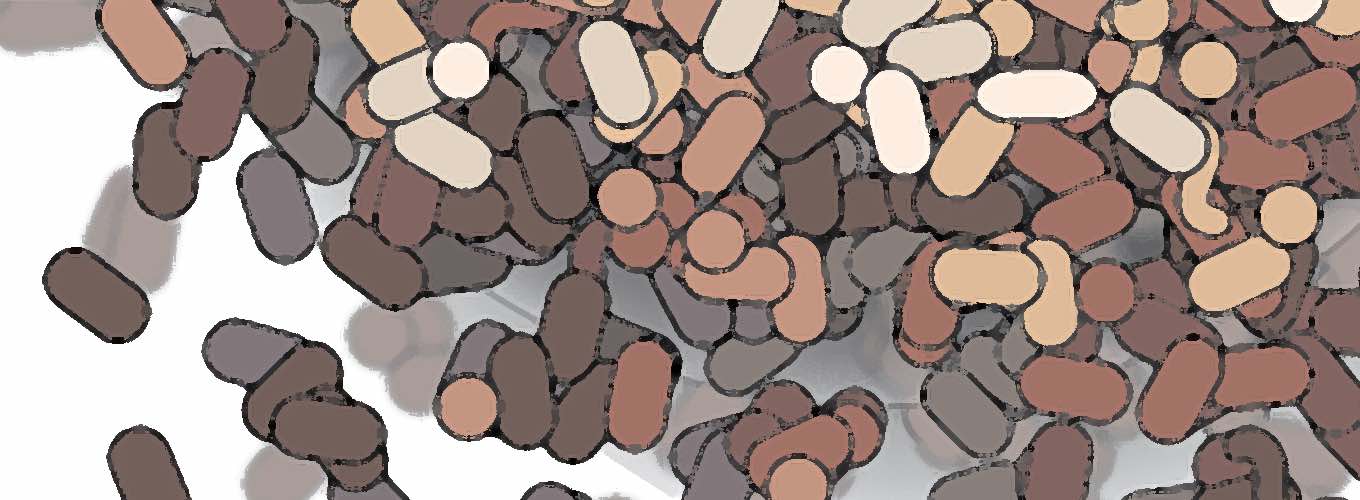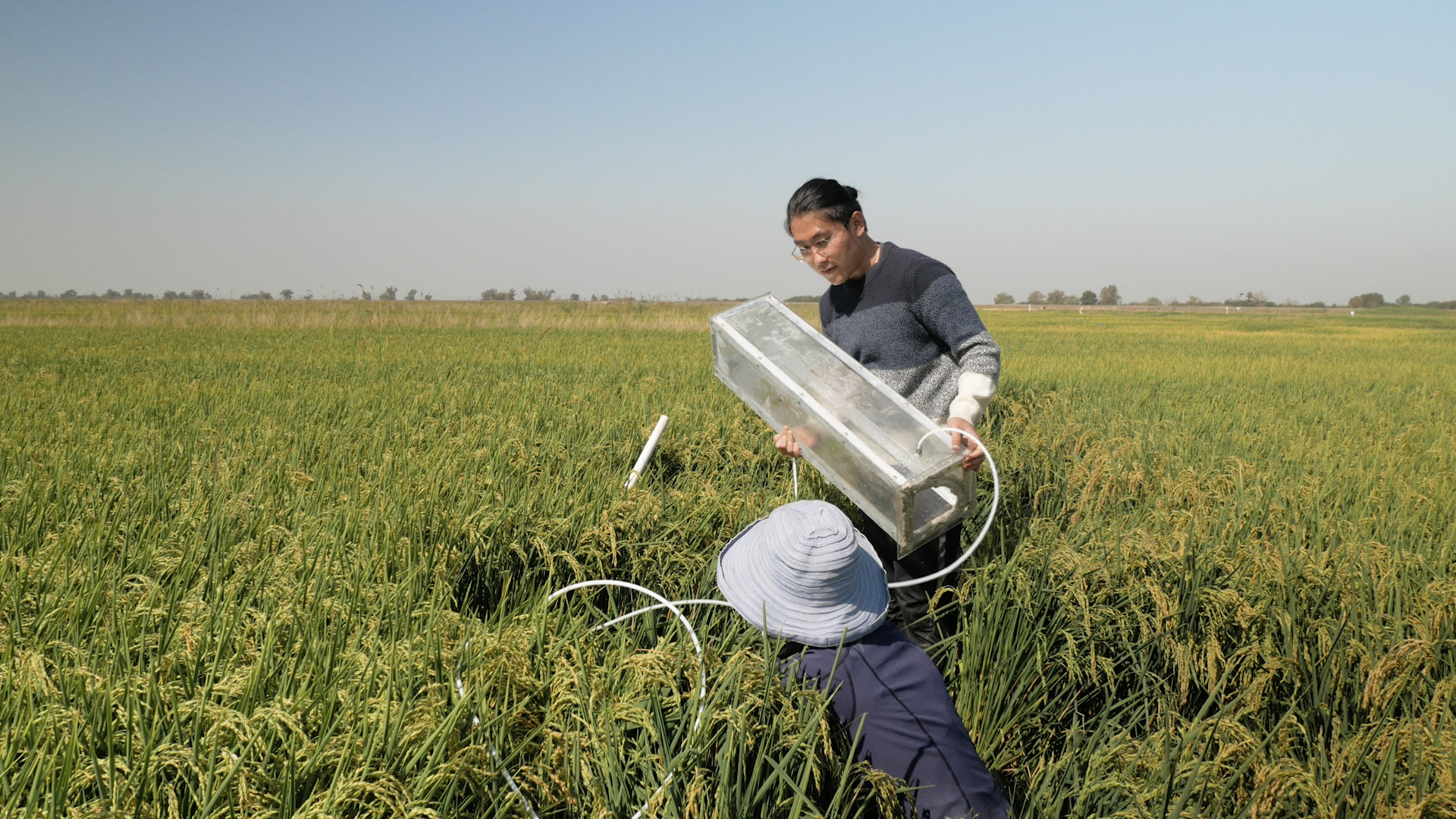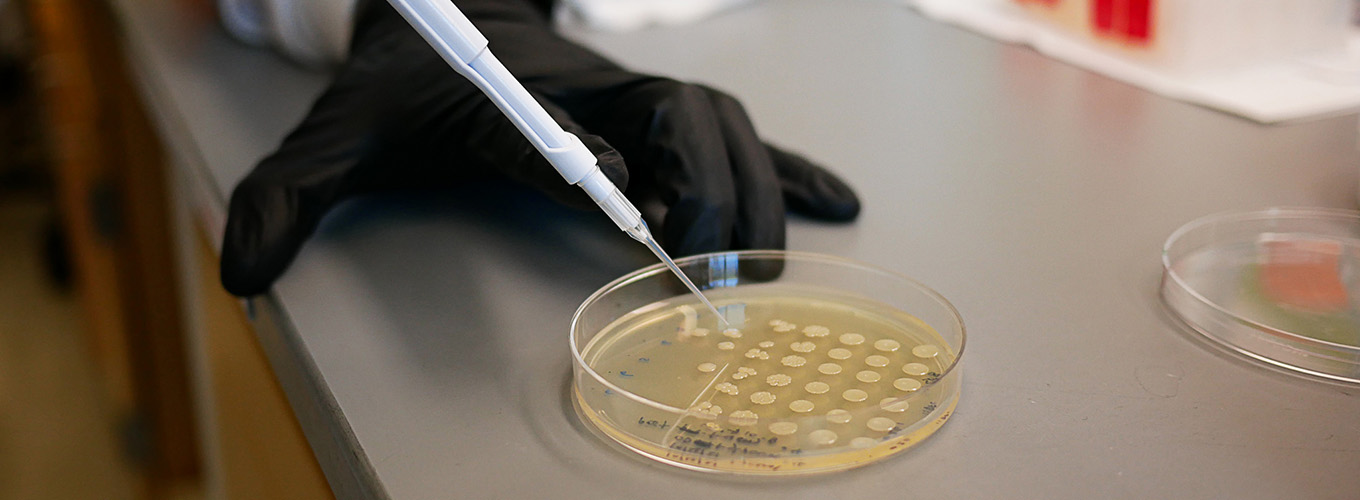
New Gift Supports Precision Microbiome Editing Technology Development at the IGI
A $2.5 million gift from the Shurl and Kay Curci Foundation will help realize the potential of community editing
The development of CRISPR genome editing 10 years ago is part of a long history of innovations that came from basic research. Now a new gift of $2.5 million from the Shurl and Kay Curci Foundation is helping researchers at the IGI explore new ground in the genome-editing world: directly editing the genomes of microbes within their microbiomes, the complex communities where microbes are found in nature.
Using CRISPR to edit the genomes of microbes is not new. This is a common practice when it is possible to grow — or “culture” — a single microbe species in the lab. The challenge for researchers is that less than 1 percent of known microbes can currently be cultured in a lab setting. The vast majority are known only from sequencing complex communities in nature where species rely on others in the microbiome for survival.
The new funding will support three collaborating IGI researchers, Spencer Diamond, Brady Cress, and Ben Rubin, to build on a recent project where the team demonstrated a new way to edit the genomes of microbes directly within a microbiome in a highly targeted way, in what the team is calling “microbiome editing.”
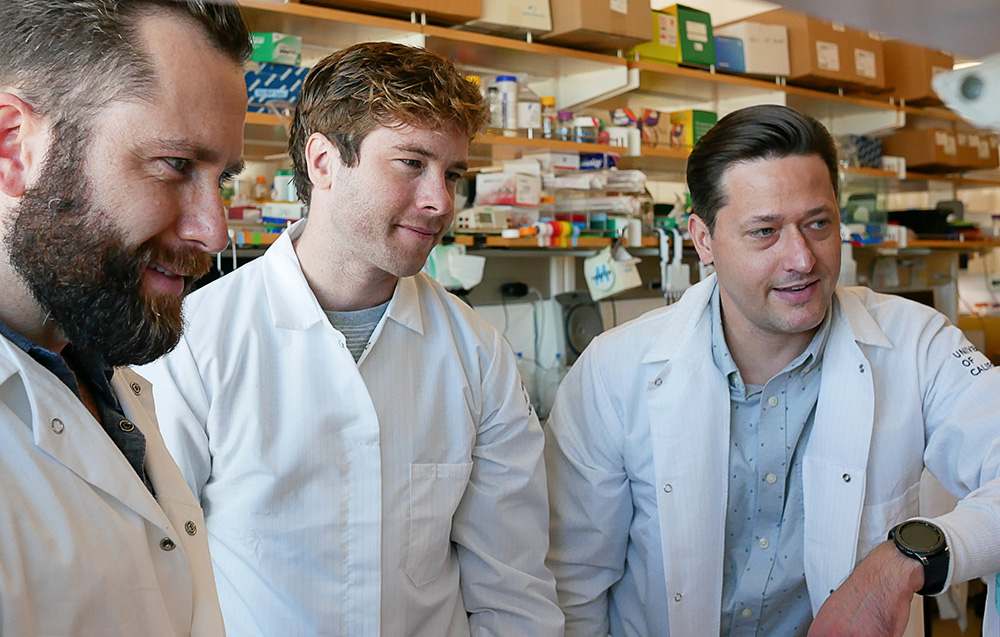
While much of the interest in CRISPR has focused on its therapeutic potential, particularly for addressing genetic diseases like sickle cell disease, it has also had a tremendous but often overlooked impact as a research tool for understanding how different genes and particular mutations affect human health. Similarly, the first step in community editing is to use the new approach to better understand how microbes function within a community to impact their hosts and environments. This information will help design interventions for human health, the environment, and climate change down the road.
“The Shurl and Kay Curci Foundation seeks partnerships that help carry out its mission to advance a healthy and sustainable future for humans; a complex life-science endeavor. A long-standing relationship with IGI and its scientists have been a significant part of our efforts,” says Ron Rosequist, President of the Shurl and Kay Curci Foundation. “This new microbiome editing inquiry is an exciting CRISPR-related project that could positively impact many facets of human health and sustainability. We’re pleased to support these excellent individual scientists and the IGI’s continued efforts to fully understand genome editing.”
The three researchers have a history of collaboration on past projects, and each brings a unique skillset to the group. Diamond will focus on cultivating and modeling microbiomes to develop a deeper understanding of microbes and their roles in communities, Cress will focus on developing new and improved microbiome-editing technologies, and Rubin will hone the technologies with an eye toward eventual real-world applications. The three will also work closely with IGI Director of Microbiology, Jill Banfield, and IGI Founder Jennifer Doudna as a collaborative IGI initiative focused on developing microbiome editing tools that they are calling the Berkeley Initiative for Optimized Microbiome Editing.
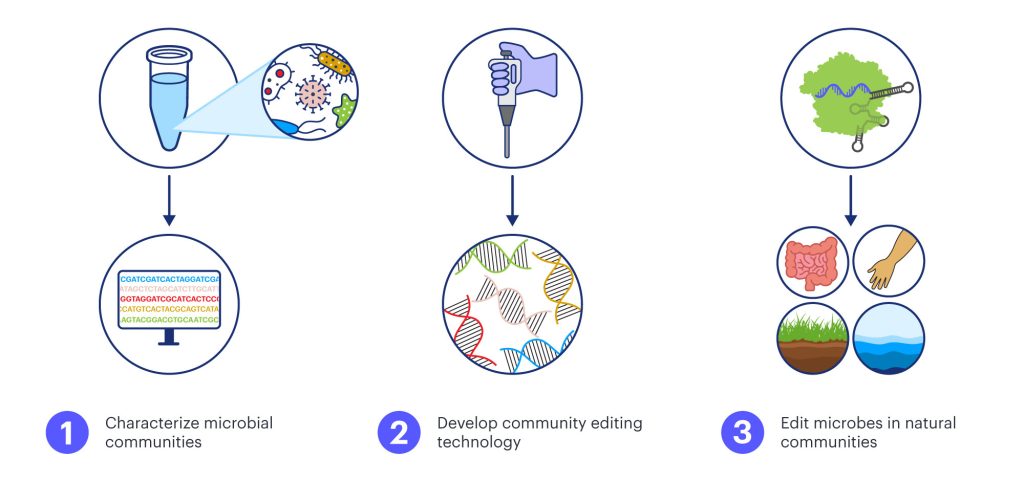
Imbalances in the human microbiome are implicated in a growing list of diseases including antibiotic-resistant infections, cardiovascular disease, irritable bowel syndrome, and there is increasing evidence linking the gut microbiome to brain health. In addition to human health implications, microbes are the ultimate source of a large percentage of greenhouse gas emissions from agriculture.
“In the future, we could potentially eliminate genes in a person’s gut bacteria that cause or make someone more susceptible to illness, or stop bacteria in the guts of livestock from producing methane,” says IGI Executive Director Brad Ringeisen. “There are a variety of possible applications, but before we start to drive, we need a clear map to where we’re going.”
This work comes out of the Advancing Genome Engineering program at the IGI, which builds on the foundational technology of CRISPR genome editing by developing new delivery approaches for gene-editing proteins, adding new genome editors to the expanding toolkit, and discovering new genomic tools using machine learning and metagenomics. The initial project that spurred the IGI’s work in microbiome editing was funded by the U.S. Department of Energy as part of the m-CAFEs (Microbial Community Analysis & Functional Evaluation in Soils) project led by Lawrence Berkeley National Laboratory.
The Shurl and Kay Curci Foundation has been a strong supporter of basic research efforts at UC Berkeley and the IGI, including providing funding for the SKCF Faculty Scholar program, which launched in 2017 to support projects from early-career faculty whose research aligned with the IGI’s goal to advance human health using precision genomics.
Read more about the Berkeley Initiative for Optimized Microbiome Editing
Media contact: Andy Murdock — andymurdock@berkeley.edu
